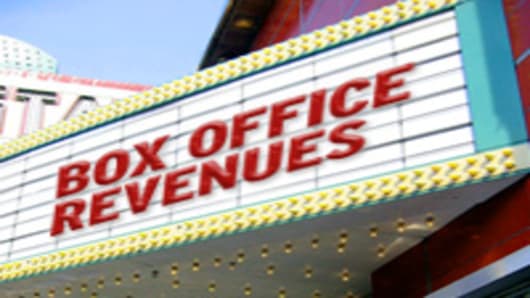If you think you have a special skill for predicting the box office, you may be in luck. People have speculated about movie performance for decades, but now an investment firm is working on launching an *actual* market for trading domestic box office futures.
A division of Cantor Fitzgerald, Cantor Entertainment, recently filed for regulatory approval with the Commodity Futures Trading Commission (CFTC) for a commodities futures market called the "Cantor Exchange." Just like you can trade pork belly or oil futures, now you'll be able to trade future movie performance. The exchange will allow people to buy and sell futures on a movie's first four weeks at the U.S. box office, for up to six months before its released.
This will allow film buffs to place real bets on their cinematic convictions, but perhaps more importantly, Cantor is hoping to provide a new way for a movie's backers to hedge their investments. Certainly, with the tightening credit markets, it's harder for financiers to raise money to make films.
Andrew Wing, the CEO of Cantor Entertainment says his new service should give film funds liquidity as movies are released, instead of having to wait until well after a movie hits theaters, when DVD and other revenues come in, months later.
Cantor Entertainment also owns the Hollywood Stock Exchange an online virtual trading site for movie buffs that's been around since 1996. HSX has 700,000 registered users who can buy and sell virtual shares of "Moviestocks" and "Star Bonds," betting on the future fate of actors like Keanu Reeves or the upcoming "Star Trek." But HSX uses virtual money -- the "Hollywood Dollar" -- whereas the planned Cantor Exchange would use real money.
Here's the most basic explanation of how it'll work. Say the new James Bond film's financial backers predict the movie will bring in $200 million dollars at the domestic box office for its first four weeks, they'll price a contract at $200 dollars. If you are a huge Bond fan, and convinced this next movie will be huge, you buy a contract at $250. If you're right, you get the spread, and vice versa. Here's the rub, according to Wing, financial backers of the movie would have to put up money for the initial contract.
My question is whether a studio or independent producer would want to reveal what its expectations are for its upcoming release. Would it want to over-inflate expectations to give the impression that the movie will be really good? I don't know if it's really in the best interest for a financial backer of a movie to put their expectations out there, especially if it's a movie studio owned by a public media conglomerate. Though the idea of hedging financial bets is always appealing in this risky industry. We'll see if the company gets regulatory approval, and who gets on board.
- YouTube's Recession-Proof Cottage Industry
Questions? Comments? MediaMoney@cnbc.com



